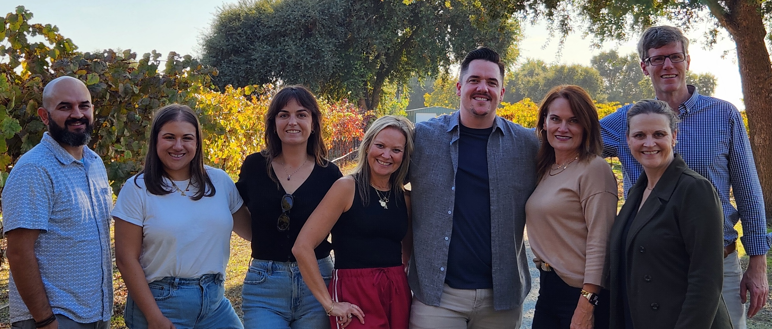How to Inspire Accountability and Ownership in Your Team
October 24, 2025
Published in:
Accountability can’t be forced—it must be inspired through trust, clarity, and connection. By modeling ownership, defining clear values, and nurturing a culture that rewards integrity and growth, leaders empower teams to take pride in their work and purpose.

If you’ve ever led a team, you know that accountability and ownership can’t be mandated. They must be inspired. True ownership comes when people feel trusted, valued, and connected to a bigger vision – when they understand not just what they’re doing, but why it matters. Over the years, my own leadership philosophy has been shaped by classic works such as Dale Carnegie’s How to Win Friends and Influence People, Patrick Lencioni's The Ideal Team Player, and Gino Wickman’s Traction, alongside lessons from building a meaningful culture within my own organization. What I’ve learned is that accountability thrives on clarity, mutual respect, and personal responsibility.

Ownership flourishes in environments where people are empowered to make decisions, supported when they take risks, and held to high but fair standards.
Start with Human Connection
Carnegie reminds us that people crave recognition and a sense of importance. Leaders who criticize or micromanage quickly breed resentment, but leaders who listen, appreciate, and give credit create a foundation of trust. Accountability begins here: People will take ownership when they feel seen and respected as individuals, not just employees. A genuine interest in your team — knowing their names, strengths, even their quirks — signals that they matter. When people matter, they show up differently.
Clarify the Vision and Values
Wickman’s Traction emphasizes the importance of clarity: Everyone in the organization needs to know where the company is going and how you’ll get there. Without this, inspiring accountability in your team is impossible because no one knows what they’re accountable to. Set clear goals, share them openly, and align them with your values. At Merlot Marketing, we say “use good judgment” as a guiding policy. That shorthand works because it’s rooted in shared values — integrity (heart), hustle, and teamwork. These are values the team believes in. When your team knows the standards, they don’t need constant reminders; they hold themselves and one another accountable.
Model Ownership, Don’t Demand It
Ownership can’t be enforced; it must be modeled. That means leaders must admit mistakes, take responsibility, and demonstrate what accountability looks like in action. One of the best ways to encourage accountability is to ask questions rather than give orders. Instead of saying, “Here’s what you did wrong,” try, “What do you think worked here, and what could we do differently?” This approach both respects your team’s intelligence and invites them to own the solution.
Build a Culture That Rewards the Right Behaviors
Culture is simply “the way we do things here.” If accountability and ownership are important, then they must be reflected in who gets recognized, promoted, or trusted with new opportunities. Ownership flourishes in environments where people are empowered to make decisions, supported when they take risks, and held to high but fair standards. Conversely, when gossip or blame is tolerated, accountability withers. Culture is like soil; it needs constant care to keep your team growing.

Accountability and ownership are not about control; they’re about empowerment.
Create Space for Growth and Contribution
People don’t own what they don’t feel part of. Invite your team into the process: Let them weigh in on goals, celebrate their wins publicly, and encourage curiosity. Ownership deepens when people believe their contributions shape the whole. Growth is a two-way street: when leaders invest in developing their people, teams often give back through higher levels of commitment and care.
Keep the Balance of Heart and Discipline
Carnegie’s timeless reminder to appeal to nobler motives and Wickman’s insistence on discipline may sound at odds, but together they form the backbone of accountability. And Lencioni’s trifecta of hiring based on three essential virtues of “humble, hungry and smart” create the balance needed to build and nurture the ideal team.
By inspiring your team with purpose and balancing inspiration with structure you can achieve: clear quarterly goals, transparent scorecards, and honest feedback, where the heart fuels the “why,” and the discipline ensures consistent execution.
Empowerment is Key
Accountability and ownership are not about control; they’re about empowerment. They come alive when leaders connect with their teams as people, provide clarity of vision and values, and cultivate a culture where doing the right thing is both expected and celebrated. As leaders, our task isn’t to force compliance but to create conditions where ownership becomes natural. When people feel part of something meaningful and know their role in achieving it, accountability stops being a chore and becomes a source of pride.
Contributed by Debi Hammond, an EO US East Bridge chapter member who is the founder and CEO of Merlot Marketing.
Related articles of interest: